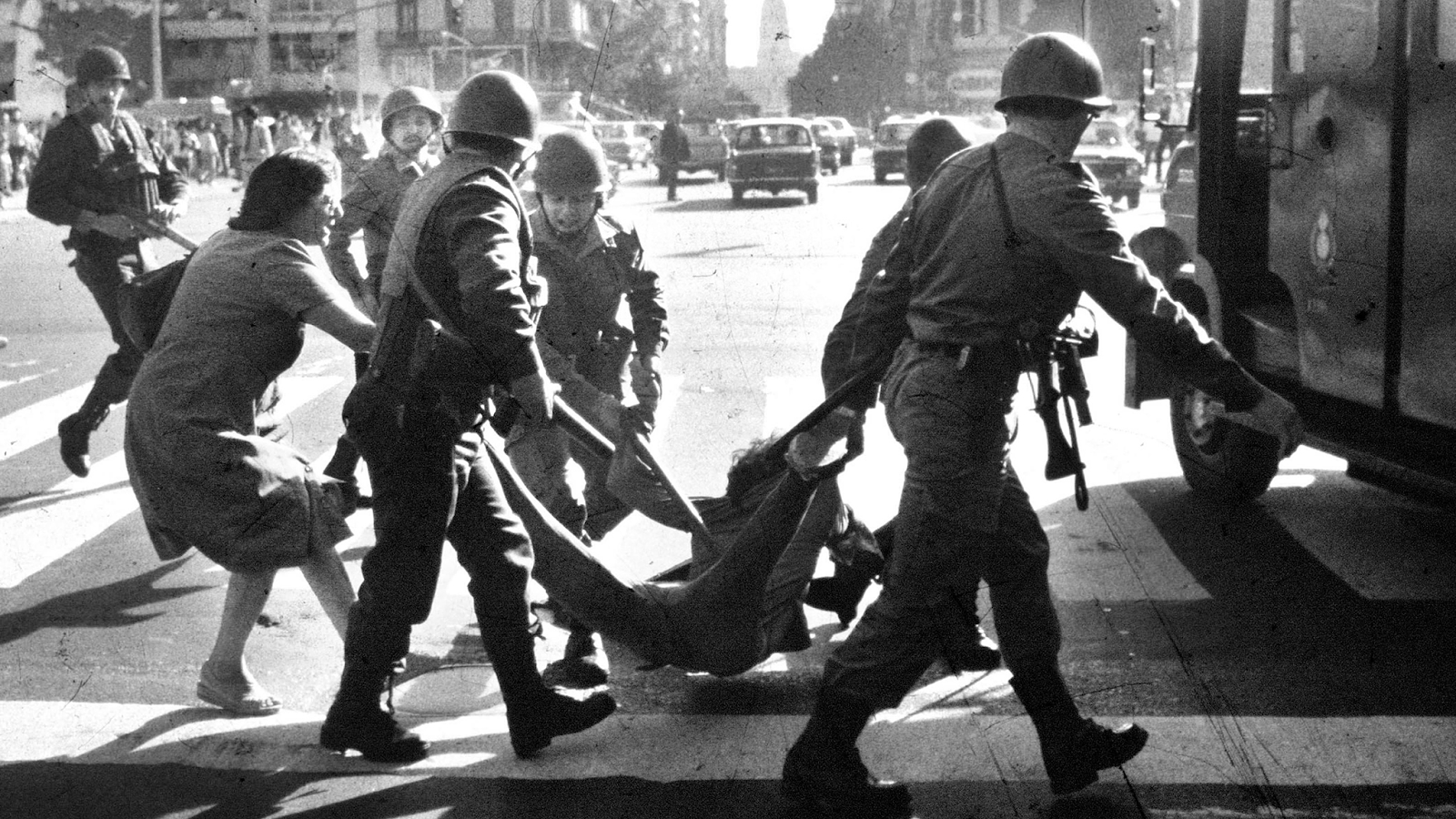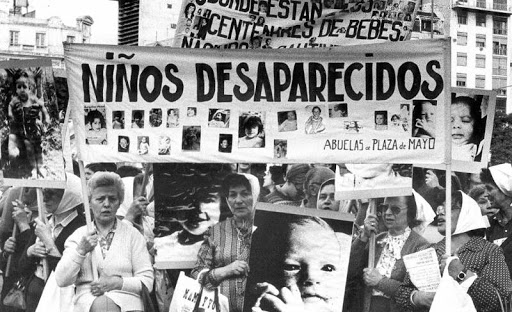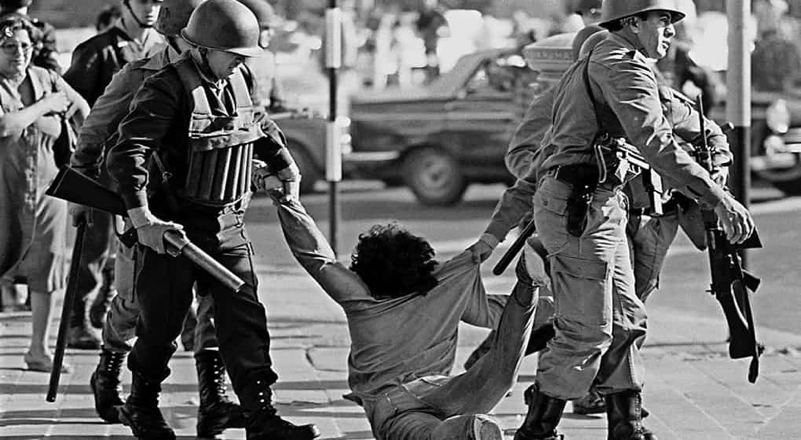Juan, Eva, and Isabel Peron
Juan Peron was a politician in Argentina who rose to power in June 1946, when he became president of Argentina. In 1974, Juan died and was succeeded by Isabel Peron, his then wife and vice president. Isabel issued brutal authoritarian policies including executions and “death flights”, a practice where kidnapped dissidents would be thrown out of helicopters into the ocean.
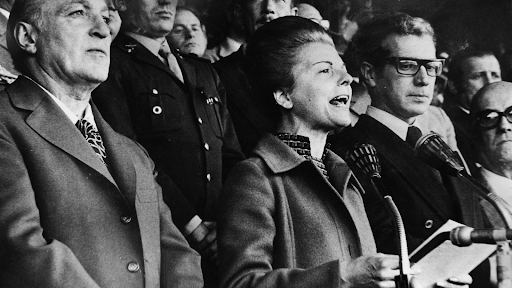
Human rights groups have blamed the [Perónists] for the killings of at least 1,500 political opponents, most of which occurred when Ms. Perón, a former cabaret dancer who was the general’s third wife, was in power.
- Larry Rohter, The New York Times
However, political stability deteriorated, rendering Argentina susceptible to a communist takeover. The Argentine right-wing, however, acted faster than any speculated communists. In 1976, a military junta led by General Jorge Rafael Videla overthrew President Isabel Perón, and the CIA quickly became involved, citing the longstanding anti-US sentiment of the Peronists.
Jorge Rafael Videla
I was very interested in the lineal evolution of neo-nazi and facist thought in Latin America. The generals that took over in 1976 certainly represent that.
- Martin Edwin Anderson
Following the 1976 coup, General Jorge Rafael Videla began the
National Reorganization Process, and it resulted in nearly 30,000
people to “disappear.”
U.S. Secretary of State Henry Kissinger paid several official visits
to Argentina during the dictatorship, including Jimmy Carter’s 1977
visit with Videla.
"Recently declassified documents show [Kissinger] also encouraged the mass killings carried out by the Argentina’s military during the 1976-83 dictatorship."
- Pressenza, International Press Agency
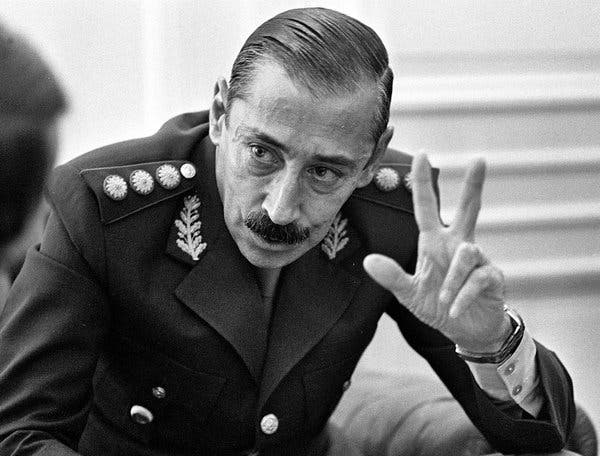
Jorge Rafael Videla [Credit: Britannica]
I want to clarify that Argentine citizens are not victims of the repression. The repression is against a minority that we do not consider Argentine.
- Jorge Rafael Videla, President of Argentina
The Dirty War
What ensued was an infamous campaign from 1976 to 1983 led by Argentina’s military dictatorship against left-wing political dissidents: a war not against outside forces, but its own people. Among the targets were activists, trade union workers, suspected socialists, professors, women, and children - most of whom were incarcerated, tortured, or murdered. It is even noted that Argentine officials consulted Nazi War criminals during this time.
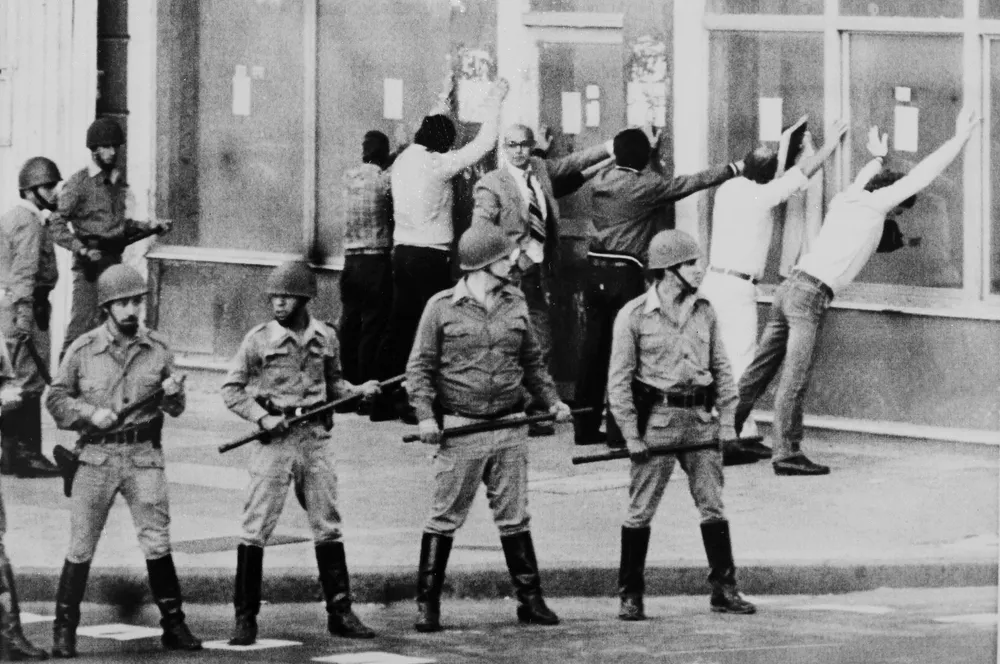
Argentine soldiers participating in the 1976 Argentine coup d'état
[Credit: PBS]
During this event, many known human rights violations were committed, including extrajudicial arrests, mass executions, torture, rape, disappearances of political prisoners and dissenters, and illegal relocations of children born from pregnant women (born both before imprisonment and rape).
Victims died during torture, were machine-gunned at the edge of enormous pits, or were thrown, drugged, from airplanes into the sea... "Those individuals came to be known as 'the missing' or Desaparecidos.
- Marguerite Feitlowitz, author of A Lexicon of Terror: Argentina and the Legacies of Torture
The Desaparecidos were quite literally disappearing: the Videla regime inherited the Peronist practice of death flights and implemented them on a massive scale.
Imagine yourself, eating dinner with your family or maybe a boyfriend/girlfriend, etc. Soldiers break your door down, take your mother and are gone in 30 seconds--and you will never see the "suspect" again. Ever. A lifetime of love, wisdom, friendship, gone. There is no police department you can call, no judicial court that will listen to you. You have no idea where they are, who took them, or why they took them. A family member has just been removed from your life permanently in 30 seconds or less. The Desaparecidos (disappeared) were tortured, and, if female, raped, then the bodies dumped in the ocean or buried under cover of darkness.
- Anonymous Argentine student
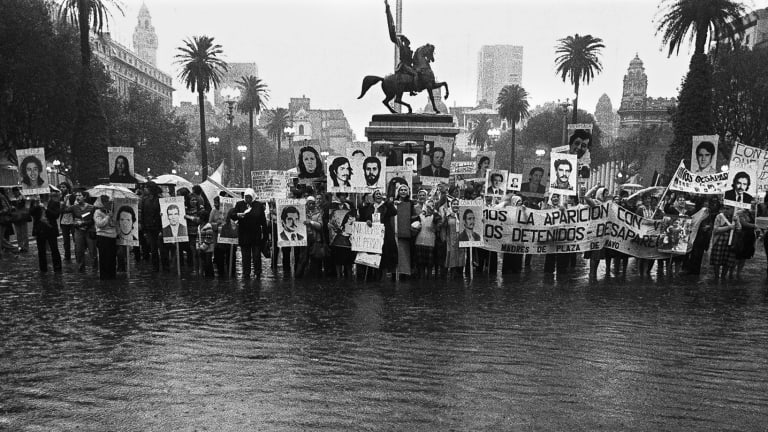
Raul Alfonsin, the president of Argentina in 1983 after the Dirty War, was one of the first civilians ever to put military commanders who had previously been in power on trial in the 1985 Dirty War Trial which I covered. That was long overdue.”
- Martin Edward Anderson, former investigative journalist in Argentina during the Videla regime
After the trials that were placed on Videla and those involved in the Dirty War, I was thrilled. I had read extensively on the examples from World War II and spent a lot of time thinking on how I would cover it. I became fairly close to the prosecutor at the time, Julius Garcera and had a lot of military intelligence community contacts. Let me just say, it was one of the most necessary and important trials in Argentine history.
- Martin Edwin Anderson
